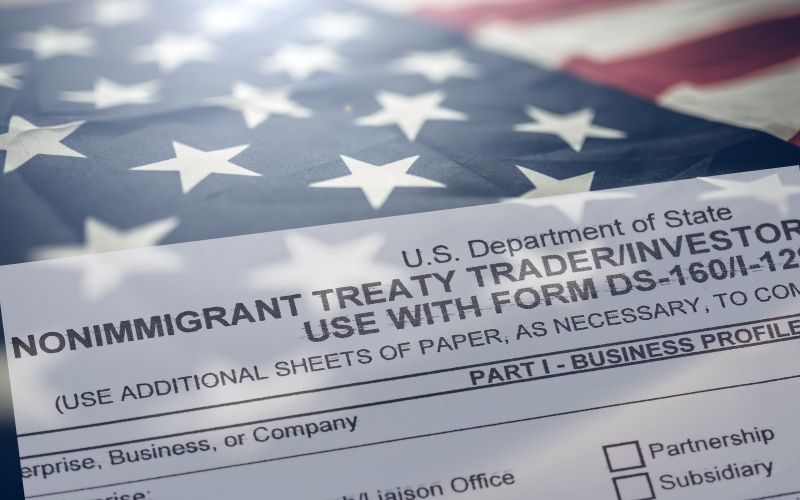
So, what is a franchise, really? At its core, it is a business model where someone (that’s you, the franchisee) gets the legal right to run a business using another company’s brand, products, and processes. That company is the franchisor.
Instead of building a business from scratch, you operate under an established brand. In return, you follow the rules of the franchise system and pay fees outlined in a legally binding franchise agreement.
You will also get access to support, training, and the franchisor’s intellectual property, like trademarks, service marks, and other business tools.
The word franchise goes back centuries, originally meaning “freedom,” and that still fits today. Franchising gives people the chance to own their own business with guidance from a successful, proven system.
Franchise Basics
Think of a franchise as a partnership. You own your business, but it runs as part of a network with consistent branding and operations. From American fast-food giants to local fitness studios, many of the businesses you see every day are part of a franchise system.
There are two main types of franchising relationships:
Product Distribution Franchising:
You sell the franchisor’s goods, often under their brand name—a model that is common in the automobile industry and soft drink distribution.
Business Format Franchising:
The most popular model. Here, the franchisor gives you everything you need—training, marketing strategy, operating manuals, and ongoing support—to run the business their way.
Most franchises fall into the business format category. It is structured, scalable, and focused on helping you succeed.
How Does Franchising Work?

At its core, a franchise is a business that operates under a licensing model — a contractual relationship between two independent parties: the franchisor, who owns the brand and business system, and the franchisee, who pays for the right to operate under that brand.
In what’s known as a business format franchise, the franchisor licenses not just a name or product but an entire franchise system — a fully developed playbook for running a successful business.
This system is designed to give potential franchisees the tools, training, and support they need to replicate the brand’s success in new franchise locations.
Here’s what a typical licensing relationship includes:
Branded Products and Services
You will be selling the franchisor’s trade — the same goods or services that made the brand successful in the first place. Whether it’s smoothies, tutoring services, fitness classes, or home repair, you benefit from a recognized name and trusted offerings.
Business Systems and Processes
From point-of-sale software to customer service protocols, you get access to the proven business system that powers all franchise units. Consequently, these processes help ensure consistency across every location and increase your chances of success.
Employee Training
The franchisor provides structured training for you and your staff — covering everything from daily operations to long-term growth strategies. Moreover, it is helpful if you are entering a new industry or transitioning from corporate life to entrepreneurship.
Marketing Plan and Brand Strategy
Franchise brands often develop national or regional ad campaigns, and you will also receive guidance on local marketing. The marketing plan may include digital tools, promotional templates, and strategies to drive foot traffic and build a local customer base.
Real Estate and Development Support
Many franchisors offer assistance with finding the right location, negotiating a lease, and managing the build-out, because even a great concept needs the right setting to thrive.
Ongoing Business Advisory
A good franchisor doesn’t disappear after you open your doors. Instead, expect regular support calls, operational updates, and performance coaching to help you meet your business goals.
Quality Control and Brand Consistency
Maintaining brand integrity across multiple franchise locations is key. That’s why the franchisor provides systems and audits to ensure each unit meets brand standards — from service quality to store layout.
In exchange for this comprehensive support, the franchisee pays an initial franchise fee plus ongoing royalty fees, typically a percentage of gross sales. Consequently, these payments fund continued support, brand development, and system innovation.
And importantly, this relationship is governed by strict regulations. In the U.S., the Federal Trade Commission requires franchisors to provide a Franchise Disclosure Document (FDD), which outlines the legal and financial aspects of the opportunity.
This document helps protect potential franchisees by offering transparency before they sign any agreement.
Franchise Investment: The Costs

Investing in a franchise is a powerful way to launch a business based on a proven concept — but like any serious venture, it comes with a price tag. You’re not just buying the right to use a trade name — you’re buying into the entire system that makes the franchise run smoothly. That includes training, support, operational guidance, marketing, and more.
Here’s a breakdown of the costs involved in a franchise investment:
Initial Franchise Fee
This is a one-time entry ticket. You pay it upfront to gain access to the brand, its business system, and the rights to operate under its trade name. This fee can vary widely depending on the brand’s market position and the type of business — from just a few thousand dollars to well over six figures for more recognized names.
Ongoing Royalties
These are recurring payments you make to the franchisor, typically calculated as a percentage of your sales revenue. Moreover, royalties fund continued support, training updates, system improvements, and general brand development. In other words, it keeps the engine running after you are on the road.
Advertising and Marketing Fees
Most brands require franchisees to contribute to a national or regional marketing fund. Consequently, these fees support the broader brand strategy — think commercials, social media, website management, and national campaigns — thereby helping you build local momentum through collective visibility.
Start-Up and Operational Costs
Beyond the franchise fee, there are real-world expenses to get your doors open and your business operational. This can include:
- Real estate or lease deposits
- Equipment and technology systems
- Initial inventory and supplies
- Business licenses and insurance
- Build-out and signage
- Hiring and training staff
Start-up costs vary widely depending on the franchise concept, location, and business model. For instance, a home-based service franchise may have lower overhead compared to a brick-and-mortar restaurant or retail store.
Additional Fees to Watch
Some franchisors charge technology fees to cover proprietary software and digital tools. Others may impose renewal fees if you want to extend your contract after the initial term. You may also be required to meet minimum advertising spending requirements to maintain brand visibility in your local market.
Franchise Agreement: Read Before You Sign

The franchise agreement is the contract that governs the relationship between the franchisor and the franchisee. It covers:
- Franchise fees and royalty payments
- Your protected territory (if any)
- The terms of the agreement and renewal options
- Your operational responsibilities
- Termination conditions and litigation history
It’s essential to review this with a franchise attorney. This is not just a signature—it’s your business future.
Franchise Disclosure Document (FDD)
Under the Franchise Rule set by the FTC, franchisors must give you a Franchise Disclosure Document (FDD) at least 14 days before any money changes hands. This is a required legal disclosure that includes 23 sections, such as:
- The franchisor’s history
- Initial and ongoing costs
- Franchise contracts and legal obligations
- Estimated financial performance expectations
- Lists of current and former franchisees
- Disclosures about lawsuits, bankruptcies, and litigation history
Reading the FDD is a must. It’s your roadmap to understanding the franchisor’s business and how your own franchise will operate.
Franchise Funding

Franchise business ownership gives you the structure of a proven system with the independence of running your own business. In other words, it’s a hybrid model—less lonely than going solo, but still your venture.
Funding options include:
- Small Business Administration (SBA) Loans
- Conventional Bank Loans
- Rollover for Business Startups (ROBS)
- Portfolio Loans
- Franchisor Financing or Third-Party Lenders or Financial Institutions
Whatever route you choose, investing your own money wisely and doing your due diligence is key.
Franchising and the E-2 Visa

Franchising is one of the most E-2-friendly business models out there. Why? Because it checks all the boxes U.S. immigration looks for in an E-2 visa investment:
- Substantial Investment: Most franchise businesses require a meaningful capital outlay, which meets the visa’s requirement for a “substantial investment.”
- Real Operating Business: You’re not just buying assets—you’re launching a business that provides goods or services to the public.
- Business Development Support: Franchisors help guide setup and growth, ensuring your business is operational and credible, crucial for your E-2 visa application.
- Job Creation: Many franchises scale quickly enough to employ U.S. workers, which strengthens your E-2 visa case.
From quick-service restaurants to home services, fitness studios to tutoring centers, many franchises are tailor-made for E-2 visa investors looking for a stable, scalable path into the U.S. market.
Choosing an E-2 Friendly Franchise
As a prospective franchisee pursuing the E-2 visa, one of the most important decisions you’ll make is selecting the right franchise to invest in. Ultimately, this isn’t just about picking a business, it’s about aligning your immigration goals with a proven, scalable operation that can thrive in the U.S. market.
But not all franchises are created equal. If you want your investment to support a successful E-2 visa application and set you up for long-term success, here’s what to look for:
Look for a Proven E-2 Track Record
Some franchises are already familiar with the E-2 visa process. They’ve worked with immigration attorneys, helped investors prepare business plans, and understand the documentation required to prove your investment is substantial and legitimate. Choosing a franchise with an E-2 experience means fewer surprises and a smoother path.
Choose a Recognized Brand with Strong Market Presence
Brand recognition matters, especially when entering a competitive market as a new business owner. Consequently, investing in a recognized brand gives you a head start by tapping into an established reputation, loyal customer base, and built-in demand for its products and services.
This level of brand equity can be a major asset when launching your business, building trust in your local market, and showing the U.S. government you’re putting your capital into a viable venture.
Prioritize Training, Support, and Franchise Law Compliance
Starting a business in a new country comes with a steep learning curve. Franchisors that offer comprehensive training, onboarding, and ongoing operational support can make that transition significantly easier. A good franchise will also operate within the boundaries of franchise law.
It provides a thorough Franchise Disclosure Document (FDD), offering transparency in fees and ensuring you understand your rights and obligations as a franchisee. When you’re moving your life to another country to build something new, that kind of structure and clarity is invaluable.
Invest in High-Growth Industries
Some industries are especially favorable for E-2 investors because they’re not just stable — they’re expanding fast. Sectors like health and wellness, education services, pet care, eco-friendly solutions, and home improvement are seeing significant growth across the U.S.
These businesses often offer flexible entry points for new owners and provide essential services with wide consumer appeal — all while supporting the kind of job creation the E-2 visa process favors.
Find Operational Flexibility and Scalable Growth Potential
Many E-2 visa holders start small, but they want the option to grow. Whether you’re looking for a hands-on, owner-operated business or a semi-absentee model with room to scale, the right franchise should offer the flexibility to fit your lifestyle and long-term financial goals.
Some franchise systems are designed to support multi-unit ownership or regional expansion — an ideal path if you want to deepen your investment over time.
A credible franchisor will be more than just a brand — they’ll be a partner. They should be ready to walk you through your immigration timeline, review your business plan, and support you as you build your team — all of which strengthen your E-2 application and help you hit the ground running.
Franchise Industry Outlook

Today’s franchise landscape is incredibly diverse, offering far more than just quick-service meals.
You’ll now find franchise systems thriving in areas such as:
- Education and tutoring, where demand for supplemental learning continues to grow
- Fitness and wellness, driven by health-conscious consumers and evolving lifestyles
- Automotive services, from repairs to detailing, keep drivers safe and on the road
- Retail shops, which help distribute products more efficiently across local communities
- Healthcare and business services, offering specialized support and convenience
- Home services, including cleaning, maintenance, remodeling, and more
Franchises are designed to serve the local market while maintaining the consistency of a brand. This unique mix of local responsiveness and national recognition often leads to stronger customer loyalty.
Organizations like the International Franchise Association (IFA) promote ethical franchising, provide industry research, and advocate for fair regulations that protect franchisees’ rights. As consumer expectations shift and new technologies emerge, the franchise world keeps evolving, staying competitive by refining systems, expanding services, and adjusting to economic trends.
Final Thoughts: Is Franchising Right for You?
Franchising isn’t just a business model—it’s a launchpad. For E-2 visa investors, it offers a reliable, supportive path into the U.S. business world without starting from zero.
But like any business venture, it requires careful planning, financial readiness, and the right mindset.
Before you sign any franchise agreement, ask yourself:
- Am I ready to follow a system while still taking ownership?
- Do I understand the franchise model, costs, and legal requirements?
- Have I reviewed the Franchise Disclosure Document with a legal expert?
- Does this franchise align with my E-2 visa strategy and long-term goals?
- If the answer is yes, you might be standing at the edge of a life-changing opportunity.
Ready to Explore E-2 Franchise Opportunities?
Whether you’re just starting your E-2 journey or narrowing down your top franchise picks, make sure you’re working with people who understand both franchising and immigration law. The right support makes all the difference.
Need help identifying franchise opportunities that align with your investment goals and visa requirements? Let’s connect. We can match you with an E-2 eligible franchise business owner, walk you through business planning, and help you move forward with confidence.
